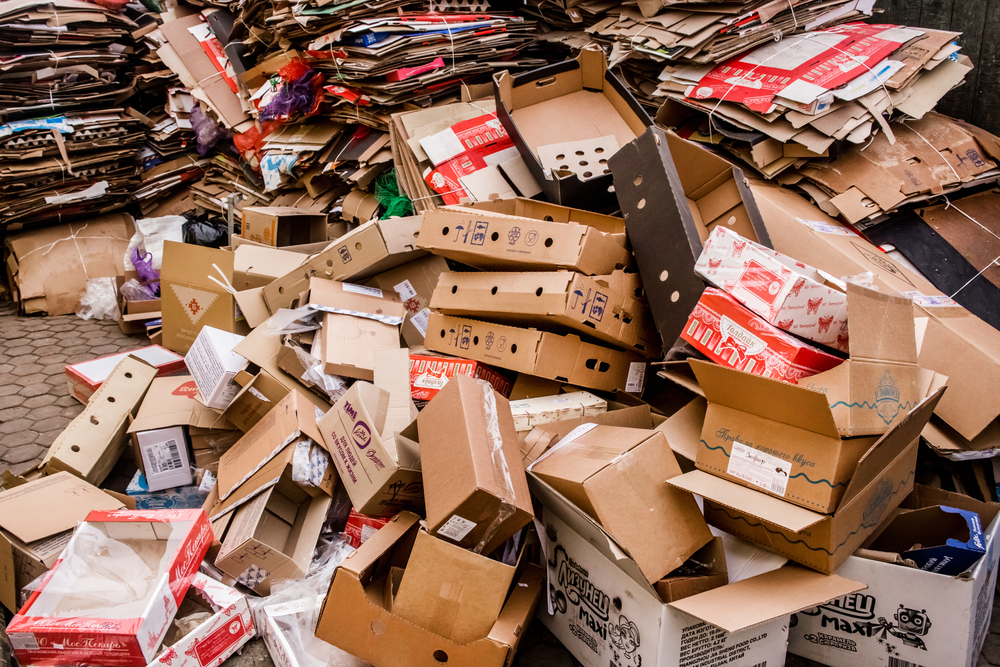The need for speedy profits has brought the world’s financial system to its knees. Financial high-flier Woody Tasch believes his Slow Money movement, which invests in sustainable agriculture, can put the economy back on its feet.
Carleen Hawn | November 2008 issue

What if you were told that one solution to crises such as global warming and the worldwide financial meltdown could be unearthed in the simple act of growing your own food? Nothing drastic; nothing revolutionary. Just a window box for a tomato plant in your kitchen.
“It’s remarkable, but people who grow their own food, who reconnect with the soil, can immediately appreciate the implications of an economy that doesn’t respect the power of ecology,” says Woody Tasch, somewhat quixotically. But Tasch is no quack. He’s chairman of the Investors’ Circle, a national group focused on funding socially responsible companies. Since 1992, Investors’ Circle has placed $130 million into 200 such businesses and venture funds. Today, sitting in the bar of a San Francisco hotel, Tasch orders a local Syrah and a fresh batch of the bar’s potato chips. “I like them because they make them here,” he explains.
“Reconnecting with the soil” may sound like a bohemian throwback. But despite the progress the environmental and sustainability movements have enjoyed in recent years, Tasch believes one aspect of social responsibility has been left out that can no longer be neglected: a more personal connection to our food. Already imposing for his height (6’2’’, some 1.9 meters), Tasch gets more and more excited as he talks. He leans into the table and gesticulates as he tosses names about—Thomas Malthus, Google, Wal-Mart, American farmer and man of letters Gene Logsdon. But it all comes down to Earth and back to sustainable agriculture.
For years, Tasch, 57, has promoted a philosophy of socially responsible investment, prioritizing the social good over the urge to make a quick buck under an ethos known as “patient capital.” Today, Tasch believes, if we have any hope of curing society’s greatest ills—much less fixing the reliance on rapid growth and rising debt that created the current crisis in the global financial markets—being “patient” with our capital is no longer enough. We need to be slow. To explain what he means, this month Tasch unveils his latest investment treatise in the form of a book entitled Inquiries into the Nature of Slow Money: Investing as if Food, Farms, and Fertility Mattered
(Chelsea Green Publishing). Slow Money, Tasch writes, is “a new vision for investing that looks above the top line and below the bottom line [by] put[ting] soil fertility back into the calculus of investing.”
If Tasch’s connection between soil fertility and investing has you scratching your head, don’t worry—he intends it to sound radical. But recall that soil fertility is one of the most valuable tools we have to fight global warming, since it’s the soil and its carbon-absorbing plants on which we depend to sequester damaging carbon from the atmosphere. But being a money manager by training, Tasch isn’t entirely impractical. He doesn’t think raising your own tomatoes can solve world famine or the chaos wrenching the financial markets.
Tasch does firmly believe, however, that the simple discipline of greening our thumbs for the purpose of nourishing ourselves, of reconnecting with the planet through its soil, is an important step toward “connecting the whole person with the sustainability problem.” Do this, he argues, and we might finally change the cultural, industrial and economic systems that accelerate things like climate change or the mortgage-related debt crisis. So Tasch’s Slow Money movement is more than just a derivative of his “patient capital” social-investing agenda. It is, he says, an attempt to make a “step change” in socially responsible investing by focusing on sustainable agriculture. “Sustainable agriculture is the forgotten sustainable niche market,” Tasch laments. He quotes American poet Gary Snyder: “Food is the field in which we daily explore our ‘harming’ of the world.” If we’re to be sustainable, Tasch reasons, we must understand where our food comes from, how it’s grown and, above all, how it’s financed.
In addition to the book, Tasch has established a non-governmental organization also called Slow Money to promote his ideas through outreach seminars and marketing. Tasch’s most ambitious goal for the Slow Money movement is to raise the first venture fund dedicated to investing in local, sustainable agriculture businesses. Tasch will manage the fund like any other, but use its capital to finance only “small food enterprises” (SFEs)—companies that generate $100,000 to $1 million in annual revenues, and meet the criteria of supporting “appropriate-scale organic farming and local food communities.” Tasch plans to begin seeking investors for the fund in early 2009, and hopes to raise between $50 million and $100 million. As some of Wall Street’s most storied institutions implode—in large part due to complex schemes for making vast profits quickly—there may be no more urgent time to advance the investing mantra “Grow Slow.”
Unfortunately, the lessons of the biggest market failure since the Great Depression are hardly original. “None of this is new,” says Peter Kinder, president of the Boston-based financial services firm KLD Research & Analytics and a pioneer of socially responsible investing. “This is the second time in 20 years that this has happened … when we’ve had a huge drop in the market as a result of these types of [abstract financial instruments],” Kinder adds, referring to the real estate market collapse of 1987. “I would hope that people in my industry have realized that investing in ‘paper,’ or securities that are not tied directly to something tangible, leads to this type of madness. Investing in real enterprises in real communities is the only type of investment strategy that makes sense.” Tasch’s Slow Money could be the connection back to Main Street that Wall Street needs right now, Kinder believes. “If you are investing in a store that is selling local produce and locally made goods you are building your community. You are building your local enterprise, and it is tangible.”
For Slow Money to take hold, though, it has to appeal beyond the investment sphere to consumers at large. One way to live the principles of Slow Money in daily life is to support local and independently owned retailers and manufacturers, says Michael Kanter, co-founder of Cambridge Local First (CLF), a Cambridge, Massachusetts, trade association. Local businesses employ local residents and vendors, reinvest profits in local enterprises and support local philanthropic causes. “Doing business and shopping locally is economically reinforcing the environment where you live,” says Kanter, co-founder of Cambridge Naturals, which sells in the neighborhood of $2 million in nutrition and body care products annually (and has operated out of a single store in Cambridge for 35 years). “It fosters a commercial feedback loop. I’m attracted to the concept of Slow Money because it speaks to the same passion of a changing economy and of people living more in community that Local First advocates.”
Other indications of a crossover between the Slow and local movements abound. In Pennsylvania, for example, the state funds a $120 million loan and grant program to support locally owned, independent grocery stores and promote the distribution of fresh foods to low-income communities. According to Stacy Mitchell, author of Big-Box Swindle, the Pennsylvania Fresh Food Financing Initiative (FFFI) has made $42 million in grants and loans over the past four years to finance 58 local grocery projects; one-third are single-location retailers, while the rest are locally owned chains. For local retailers, Mitchell writes on her website, newrules.org, “the fund not only overcomes the higher costs of opening stores in these locations. It solves what may well be a more pivotal factor driving the grocery store gap: independent retailers, unlike chains, lack access to sufficient capital.”
Better access to healthy and affordable food is exactly what Tasch hopes Slow Money will provide. In fact, Tasch named his initiative after Slow Food, the popular movement launched in 1986 by Italian Carlo Petrini to protest the opening of a McDonald’s fast food restaurant in his home city of Rome. Slow Food has more than 83,000 members worldwide, one of whom is Tasch. But the use of the term wasn’t all for brand recognition. Tasch argues that much of the environmental, social and economic strife we suffer is rooted in two fatal flaws: Our economy still exalts extraction and consumption when what we need are systems that prioritize preservation and restoration, and we’re addicted to speed.
We live in “the age of hockey sticks,” Tasch says, when progress is assessed by growth rates. How fast can we get to work to get more things done in one day? How fast can we grow gross domestic product? How fast can we compound the financial returns on our investments? A yearning for growth is not, on its own, a bad thing, says Tasch. “It’s just the market we have now—one of maximizing growth and minimizing risk—while it worked well in the industrial age, it is no longer the market we need.”
In his book, Tasch writes, “GDP growth driven by subdivisions and highways and Mustangs and 727s made sense in a pre-smog, pre-urban-blight, pre-sprawl world. Buy low/sell high made sense in a world that could not conceive of a $400 billion [in revenue] Wal-Mart, a $53 million Christmas bonus, a $400 million golden parachute or a China that is building one coal-fired power plant a week and more roads in 2008 than it had [built] in the preceding 50 years.”
Societies in the developing world have grown so much so fast, Tasch argues, that we’re bumping up against the structural limits of our social, economic and natural life systems. “We are several decades into a growth process that can’t last more than 100 years,” says Tasch. “Global warming, hurricanes every week and 400 parts per million of carbon in the atmosphere demonstrate the limits of the Earth’s natural ecosystems to tolerate maximum population or industrial growth.” To speed up food production, we’ve genetically modified grains, juiced crops in the ground with chemicals and depleted aquifers. American corn farmers, for example, can grow more corn faster than at any point in history, but the results are widespread degradation of soil fertility, a dead zone in the Gulf of Mexico and obesity epidemics side by side with persistent hunger.
“Nothing can grow forever,” Tasch explains. “Thomas Malthus was right: Ultimate expansion is not a good thing. The Earth isn’t expanding indefinitely. We only have so much soil, water and air. Technology alone is not enough to ‘innovate us out of the problem.’ I’m tired of the standard response from free market economists, that ‘the market demands growth.’ I say, No. Let’s create a new market. The alternative is not no growth. But we can have a market where growth can be slower, where the return horizon is longer and slower and where the risk [profile] and rate of return are different. That is Slow Money.”
And that’s why Tasch’s fund won’t demand the standard triple digit returns common to venture capital, or even double digit returns still dreamed about on Wall Street. Tasch will seek only 4 to 8 percent annual returns on Slow Money. “I’ve resolved that you can’t make a ton of money doing this, but our expectations have to change.”
So far, the ideas behind Slow Money have some impressive supporters. “The financial system is abstract, and it got too far disconnected from the real economy and it’s just come crashing down,” says John Fullerton, a 20-year veteran of Wall Street who managed various capital markets businesses of the firm J.P. Morgan in Tokyo, New York and London, and was part of the team that managed the bailout of long-term capital in 1998. He left in 2001 and went through what he calls “a fairly deep questioning of the financial system that I’d been a part of and thrived in.” He’s now a private investor with a focus on sustainable agriculture and alternative energy systems. He’s also a director of Investors’ Circle and an advisor to Tasch’s Slow Money organization.
“A critical investment challenge now is the need to differentiate between only investing to maximize returns and investing intentionally in areas that need capital for the good of the planet and people,” Fullerton says. “If I have surplus capital, should I only invest it to maximize my returns? If you have this [priority], then sustainable agriculture doesn’t get funded because its value is not accurately priced into markets. So it gets ignored.
“Woody is not chasing where the financial returns are,” he continues. “He’s chasing where our value system says we need to invest capital. Slow Money puts the value system above the purely financial prospects of investing. That’s a radical distinction for those of us who grew up in a free market, where you allocate capital to the places you believe it will generate the highest risk-adjusted return, and the rest will take care of itself. In nature, there is no concept of hoarding. So by investing into local food systems and Slow Money enterprises, even though you’re not maximizing returns, that to me is more in keeping with the natural order of things.”
Eric Becker, a 15-year veteran money manager with Trillium Asset Management in Boston, Massachusetts, agrees. “Slow Money is an effort to find opportunities for investors to support sustainable agriculture in their investment portfolios in a way that hasn’t been possible before,” he says. Since its inception in 1983, Trillium has focused exclusively on socially responsible investing, stewarding $1 billion in assets for its client base of institutions and high-net-worth individuals and families.
“Each year we ask our clients what priorities they want reflected in their portfolios,” Becker says. “For 25 years they’ve been checking the box that says ‘sustainable agriculture and organics.’ But other than a few public companies like Whole Foods or Celestial Seasonings teas, there have been no investment vehicles to target capital toward new or growing companies that have the health of the soil as a key component of what they’re doing.”
Becker believes Slow Money has the potential to change this, and to that end, expects Trillium will deposit a percentage of its clients’ capital into Tasch’s fund. Adds Becker, “There is a growing awareness that to have a truly sustainable civilization we need to have sustainable food systems, and to get there we need to rethink capitalism to make it work at a pace that can help finance sustainable agriculture and food systems.”
Tasch hasn’t even begun fundraising for his new efforts, but the Slow Money movement already has some early beneficiaries. Tom Stearns is the president of High Mowing Organic Seeds, a wholesale and retail vendor of more than 400 types of organic vegetable, flower and herb seeds in Wolcott, Vermont. Founded in 1998, High Mowing sells some $2 million worth of seeds each year, about 60 percent to commercial farmers. Stearns first learned of the Slow Money philosophy in the summer of 2007, while attending one of Tasch’s Investors’ Circle meetings. Today, Stearns described his company as “one early example of a Slow Money deal in practice.”
Last year, as Stearns examined how to finance expansion, he hit a wall. “I realized I was going to need outside capital to make it work. We were not in a position to be able to take on any more bank debt, so [selling more of our] equity seemed the only option. But I didn’t want to set High Mowing on a path that would require us to lose local governance or control over the operational decisions we make. While I am motivated by profit and am always watching that aspect of the company, profit is only one measure of our success.”
Having met Tasch, Stearns was given a Slow Money option. In March, High Mowing raised $800,000 through a private convertible debt offering, in which lenders take equity shares in the company if the loan is still outstanding in five years. “If I had taken on traditional equity investors, it would have been much more likely that I would have to push the [revenue] growth and my staff at an unhealthy rate. With the Slow Money offering we put together, I am able to take a more patient approach to growth and make sure the quality of our seeds and service remain exceptional as we grow. This has led me to realize how crucial it is to have the right kind of financing that matches your company and its vision. What Slow Money has already done has been an inspiration to many agricultural business owners and farmers.”
Tasch insists Slow Money isn’t philanthropy. But can anyone make (enough) money doing it? Becker is surprisingly sanguine for someone with a fiduciary duty to work in his clients’ best interests. “It’s not the size of the fund that matters; the fund just needs to invest and show returns,” he says. “This is about getting the ideas out there. The first Slow Money fund will be small. Yes, it’s experimental, and we’re going to learn a lot as we get into it further, but it’s something that the capital markets really need to address.”
Says Cambridge Local First’s Kanter, “Woody and his movement are pushing us. It’s an attempt to grow the consciousness of what it means to live more sustainably.” Adds Fullerton of Investors’ Circle: “What if money worked the way Woody talks about it working? Wouldn’t that be great, even if we were sacrificing quick riches for the good of the planet?”
Anyway, for Tasch, dollars aren’t the right metric for measuring success and failure in these times. “We live in a world of ever-depleting resources. Money is no longer the currency. Air and water and soil are the currencies of our future.”
Carleen Hawn wrote about spiritual capitalism in the June 2008 issue.











